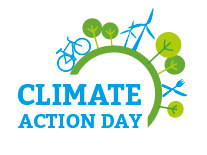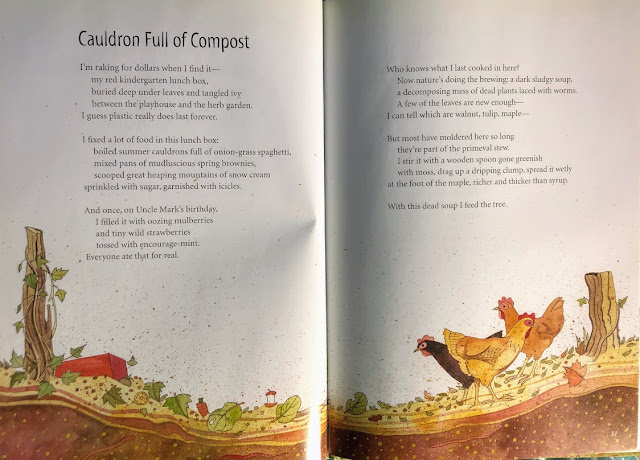Yes, racism and economic justice are towering challenges, but by working towards preserving the planet, I believe I'm also addressing those, because preserving the planet is saving the homes of its people, especially those who live where climate warming is most pronounced and dangerous. The New York Times has an extensive interactive piece called POSTCARDS FROM A WORLD ON FIRE, if that tornado system here in middle America seems like a fluke. Spoiler alert: it ain't.
So let's talk about methane. From the EPA:
Methane is the second most abundant anthropogenic GHG after carbon dioxide (CO2), accounting for about 20 percent of global emissions. Methane is more than 25 times as potent as carbon dioxide at trapping heat in the atmosphere. Over the last two centuries, methane concentrations in the atmosphere have more than doubled, largely due to human-related activities. Because methane is both a powerful greenhouse gas and short-lived compared to carbon dioxide, achieving significant reductions would have a rapid and significant effect on atmospheric warming potential.
In other words, making the effort to reduce methane emissions is extra powerful, because we could take out a much more damaging greenhouse gas effect within the 12 years it would otherwise last.
LOTS of that methane comes from food waste that is dumped into landfills where it rots anaerobically, producing methane. Here's a handy graphic to show how one state's overall waste is more than 50% organic matter that could be composted aerobically instead of dumped.
This jibes with what I learned in a Zoom call yesterday with 5 high school students who have received a WWF grant to initiate food composting in my district's schools. In an average school, food and other organic, compostable waste equals 50% of our overall trash, but it goes straight to our county landfills or incinerators. The grant program would provide our school with tools to collect food waste from the cafeteria and have it picked up and composted by a commercial composting contractor, reducing school methane contributions by close to 100%. I'm so excited about this possibility I can hardly stand it! After all, I watch about 75% of 2 PreK lunches per day go straight into our trash can.
Composting all those limp french fries, nuggets, banana peels and half-eaten pears (because if it's not an apple many kids won't eat it) means those hundreds of pounds of school food waste per week is returned to arable soil, not gassed into the atmosphere. Here's a vid from MIT that shows why this is an easy solution to our dumbest problem.
And now, because this IS a poetry blog, I give you a poem from my collection PUMPKIN BUTTERFLY (Wordsong 2009).
Folks, I fear that's a little hard to read (click it to get a better view), but I don't have time this morning to make it better! Enjoy digging into the rich organic matter of Poetry Friday, ringingly hosted for us this week by Jone at her blog. Wishing you all a merry and bright Solstice before we meet again next week!





I didn't realize how much our wasted food contributes methane to the environment! Thank you for that, and being the champion of composting. Thank you for this relevant and useful post!
ReplyDeleteThanks for this post. It is mind boggling about wasted food turning into methane. Fabulous poem about composting too.
ReplyDeleteHeidi, thanks for the facts. My oldest granddaughter is going to Kindergarten next year and she will probably be one of those children who rejects the food. She is a very picky eater. I am shocked at what you quoted: 75% of 2 PreK lunches per day go straight into our trash can. That is horrible so hooray for the high school students who are initiating food composting action. Keep fighting the good fight, Heidi.
ReplyDeleteHeidi, wonderful poem! I know it will inspire some children to think about composting. I hope you have a very Merry Christmas!
ReplyDeleteEasy to enlarge, Heidi, no worry! I like the term 'dead soup', & many compost here in Denver, schools, too, though I fear many more could, but it costs households to have it done, thus, well, others do not. How great for those students to get something done! Wishing you a Merry Christmas!
ReplyDeleteHow inspiring that your high school students are taking the bull by the horn and starting composting in your school district--letting nature do the brewing.
ReplyDeleteHooray for those high schoolers! I hope your district has success and the program can be replicated across the country. Cafeteria duty was always the worst. I hated to see all that waste!!
ReplyDeleteI love how you're using your blog to talk about climate change, Heidi! Composting is indeed a terrific and easy way to address climate change. It seems like a no-brainer for schools to start doing. How cool that you had a composting poem in Pumpkin Butterfly. I can't believe I don't remember that!
ReplyDeleteYay for these high school students and the grant making this pick-up possible!!! I'm familiar with the food waste pick-ups, we have them in Chicago. Now we need to get the cost of folks picking up the food waste down so that many more who would like to can partake in helping out. Thanks for sharing your composting poem too!
ReplyDeleteWhat an amazing initiative on the part of those high schoolers! And such an informative post. Food waste always breaks my heart but I learned a few things about its contribution to methane gas. I didn't realize the magnitude of the problem from that angle. Thank you, Heidi.
ReplyDelete